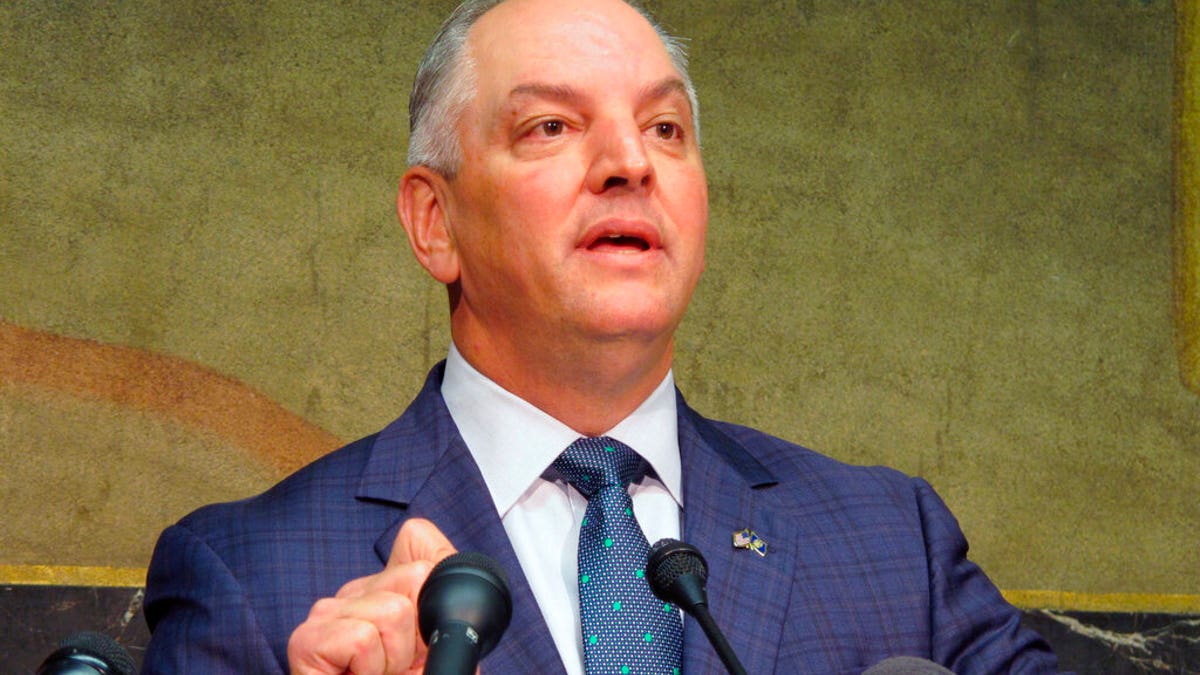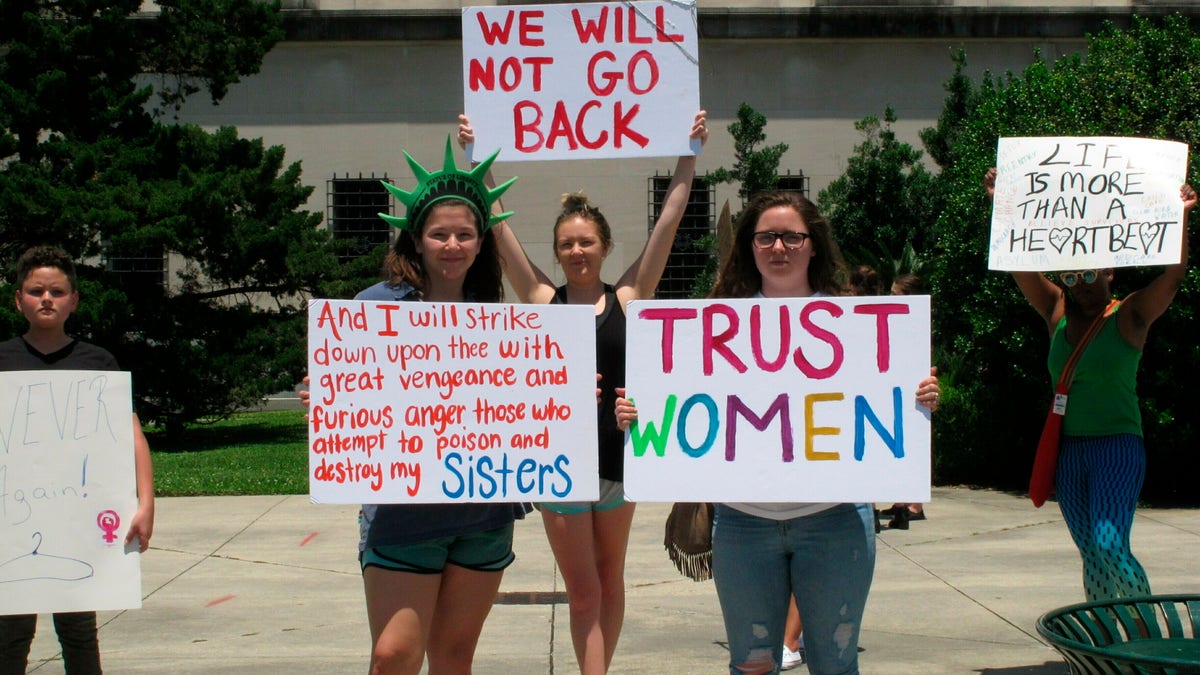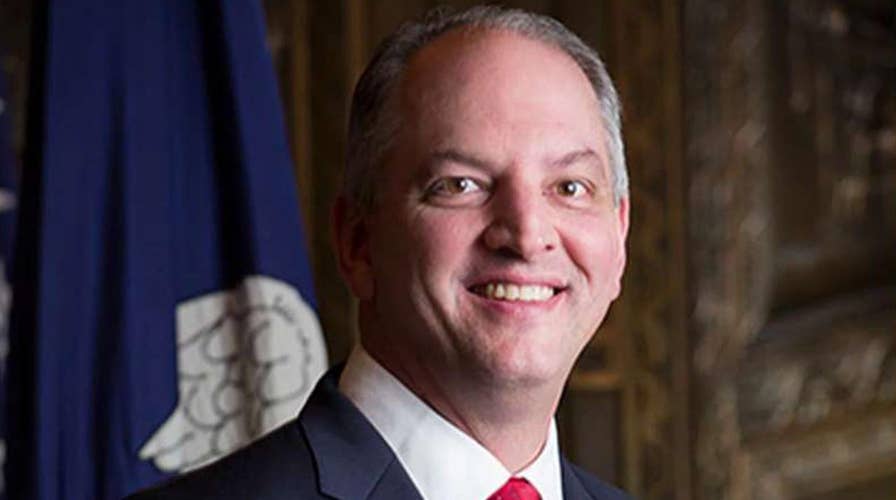Louisiana passes bill banning abortion after fetal heartbeat is detected
Louisiana Gov. John Bel Edwards is expected to sign the bill.
Louisiana's state legislature on Wednesday overwhelmingly passed a so-called "heartbeat" pro-life bill, becoming the latest in a slew of states to enact strict new restrictions on abortion that many conservatives have hoped will end with the Supreme Court revisiting its landmark 1973 Roe v. Wade decision.
Gov. John Bel Edwards, a Democrat, has said he will buck the national party establishment and sign the measure into law. Another Democrat, state Sen. John Milkovich, sponsored the bill -- underscoring the deep pro-life culture in Louisiana, even among liberal politicians.
The bill, which cleared the Louisiana House by a 79-23 vote, requires an ultrasound to be conducted prior to any abortion procedure being performed. If a fetal heartbeat is detected, the bill bans abortion unless, under penalty of perjury, the abortion provider declares the procedure necessary "to prevent the death of the pregnant woman or to prevent a serious risk of the substantial and irreversible impairment of a major bodily function of the pregnant woman."
The bill also includes an exemption in the case that a physician certifies that the "unborn child has a profound and irremediable congenital or chromosomal anomaly that is incompatible with sustaining life after birth."
The text does not include an exception for rape or incest, but it includes penalties only for abortion providers, and not women seeking abortions. Doctors breaking the law could face up to two years in prison and lose their medical license.

Louisiana Gov. John Bel Edwards, a Democrat, said he will sign the legislation. (AP Photo/Melinda Deslatte, File)
In a statement posted on Twitter shortly after the vote, Gov. Edwards emphasized that "being pro-life means more than just being pro-birth," touted his criminal justice reform and foster care initiatives, and vowed to sign the bill into law.
"I know there are many who feel just as strongly as I do on abortion and disagree with me -- and I respect their opinions," Edwards wrote. "As I prepare to sign this bill, I call on the overwhelming bipartisan majority of legislators who voted for it to join me in continuing to build a better Louisiana that cares for the least among us and provides more opportunity for everyone."
Georgia, Kentucky, Mississippi and Ohio have enacted similar heartbeat bills, which generally restrict abortion as early as the sixth week of pregnancy. Missouri lawmakers, meanwhile, approved an eight-week ban on abortion. Alabama has gone further, outlawing virtually all abortions.
None of the bans has taken effect, and all are expected to face legal challenges.
New York Sen. Kirsten Gillibrand, a 2020 presidential contender, suggested the laws made her "infuriated," writing on Twitter that "the threat to Roe v. Wade is real."
NETFLIX THREATENS TO PULL OUT OF GEORGIA OVER HEARTBEAT BILL -- HERE'S WHY IT WON'T
Louisiana's prohibition, by its explicit terms, would take hold only if neighboring Mississippi's law is upheld by a federal appeals court. A federal judge temporarily blocked the Mississippi law Friday.
In that respect, the new law is somewhat similar to a 2006 "trigger law," signed into law by then-Louisiana Gov. Kathleen Blanco, a Democrat. That law effectively would ban all abortions, except where the mother's health is in jeopardy, immediately if the Supreme Court ever reversed Roe, the seminal case that established a constitutional right to privacy and prescribed a limited right to an abortion that the high court has later refined.

Pro-choice women protest at the Louisiana Capitol, where lawmakers passed bill that would ban abortion as early as six weeks of pregnancy, on Tuesday, May 21, 2019, in Baton Rouge, La. (AP Photo/Melinda Deslatte)
On Tuesday, in a 20-page concurring opinion in an abortion-related case on fetal remains in Indiana, Justice Clarence Thomas previewed what is likely to become an all-out legislative and judicial brawl over the topic in the coming years.
Thomas openly likened abortion to birth control and eugenics, citing the statistics of minorities affected by abortion, and argued that the dissenting opinion by liberal Justice Ruth Bader Ginsburg "makes little sense."
CLICK HERE TO GET THE FOX NEWS APP
"Given the potential for abortion to become a tool of eugenic manipulation," Thomas wrote, "the court will soon need to confront the constitutionality of laws like Indiana's."
Ginsburg shot back that one of Thomas' footnotes "displays more heat than light."





